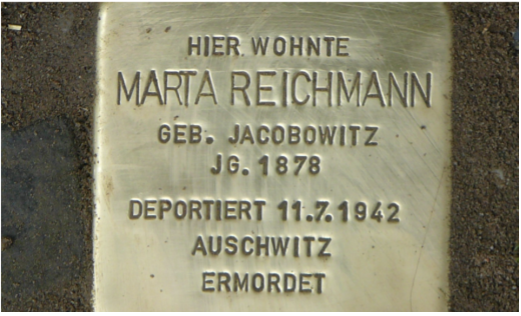Holocaust Remembrance day is here, and I find myself reflecting on the following question:
Is it “Never Again,” or is it “Will we never learn?”
Today (January 27th) marks the 78th anniversary of the liberation of Auschwitz. I’d love to say we’ve come a long way since then, but…..
- In 2021 the ADL (Anti-Defamation League) recorded an all-time high of antisemitic incidents in the U.S., this came out to an average of 7 incidents a day;
- In November and December of 2022, our local area recorded 5 incidents of antisemitism;
- This past week, antisemitic activity was identified in Kensington, and also on Georgetown University’s main campus.
If this feels overwhelming, that’s understandable. Social media is inundated with antisemitism, public figures are happily consorting with known antisemites and Jewish slurs are bandied about with little concern. Police and security guards patrol synagogues and schools. Safe spaces seem harder and harder to find and maintain.
Will we never learn, then?
Let’s not give up hope. “Never Again” is more than just a slogan. It is a constant reminder that the work is ours to take on. It is not for others to teach, it is for us. It is not for others to work for peace, it is for us. It is not for others to remember, it is for us.
When we take on these responsibilities we are moving closer to the goal of “Never Again.” Our actions, some of which include publicizing and condemning the incidents, staying on top of our elected officials, and working with our schools to educate, are the foundations for a future without baseless hatred. The work seems daunting and endless, but it is not fruitless. At least, I don’t think so.
It is easy for me to see the parallels with what my grandparents and their friends and families grappled with in Germany in the 1930s. It is scary, too. They also petitioned courts, lobbied government officials, and worked with grassroots organizations to educate and change their society. They failed.
I don’t think we will.
I find hope in communities like ours. An interfaith community as deep and dedicated as ours was unthinkable a few decades ago, much less almost a century ago. We live our lives committed to embracing our differences and respecting them. We find strength in diversity. We can model behavior and teach by example. Our community is not alone in reaping the benefits of cooperation and shared love, there are others (not just centered on religion, but centered on seeing people as they are – whatever that may be) around the country and around the world celebrating differences, thriving on respect and seeing the beauty of what is possible in this world.
The liberation of Auschwitz was 78 years ago, but the liberation of humanity from the shackles of hate and violence is yet to come.
The road ahead may not be the easiest path, but together we can navigate it. As the ancient sage Rabbi Tarfon (Pirkei Avot “Sayings of our Fathers” 2:16) taught:
“It is not your duty to finish the work, but neither are you free to neglect it.”
We are already doing the work, together. With care for one another, with respect for one another and in that most important commandment: loving our neighbors as ourselves.
Rabbi Debbie Reichmann

